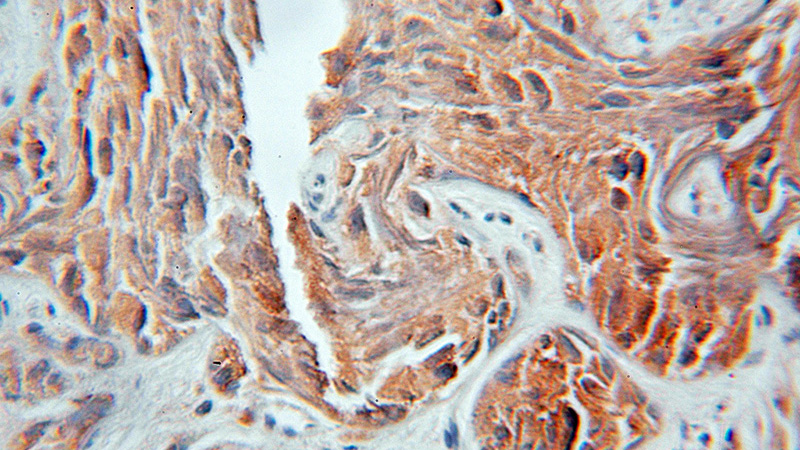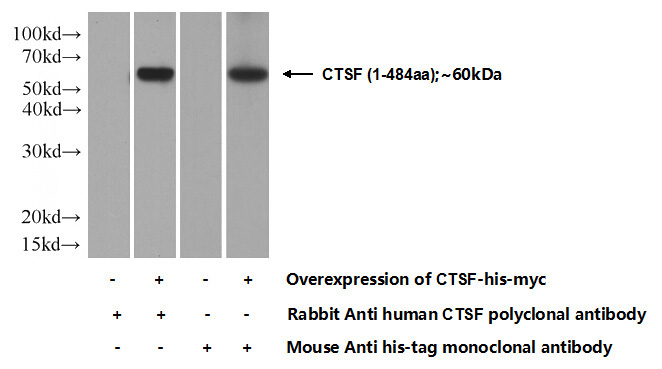-
Product Name
Cathepsin F antibody
- Documents
-
Description
Cathepsin F Rabbit Polyclonal antibody. Positive IHC detected in human prostate cancer tissue, human heart tissue, human stomach cancer tissue, mouse heart tissue, mouse liver tissue. Positive WB detected in Transfected HEK-293 cells.
-
Tested applications
ELISA, IHC, WB
-
Species reactivity
Human,Mouse,Rat; other species not tested.
-
Alternative names
Cathepsin F antibody; CATSF antibody; CTSF antibody
-
Isotype
Rabbit IgG
-
Preparation
This antibody was obtained by immunization of Cathepsin F recombinant protein (Accession Number: NM_003793). Purification method: Antigen affinity purified.
-
Clonality
Polyclonal
-
Formulation
PBS with 0.1% sodium azide and 50% glycerol pH 7.3.
-
Storage instructions
Store at -20℃. DO NOT ALIQUOT
-
Applications
Recommended Dilution:
WB: 1:500-1:5000
IHC: 1:20-1:200
-
Validations

Immunohistochemical of paraffin-embedded human prostate cancer using Catalog No:108890(CTSF antibody) at dilution of 1:100 (under 10x lens)

Transfected HEK-293 cells were subjected to SDS PAGE followed by western blot with Catalog No:108890(CTSF Antibody) at dilution of 1:1000
-
Background
CTSF(Cathepsin F) is a member of the papain family of cysteine proteases. These enzymes represent a major component of the lysosomal proteolytic system. They are synthesized as inactive precursors consisting of a signal sequence, a propeptide, and a catalytically active mature region. Cathepsins are routed to the endosomal/lysosomal compartment via the mannose 6-phosphate receptor pathway. The deduced 484-amino acid cathepsin F protein has a signal sequence and potential glycosylation sites.
-
References
- Saghizadeh M, Kramerov AA, Yaghoobzadeh Y. Adenovirus-driven overexpression of proteinases in organ-cultured normal human corneas leads to diabetic-like changes. Brain research bulletin. 81(2-3):262-72. 2010.
Related Products / Services
Please note: All products are "FOR RESEARCH USE ONLY AND ARE NOT INTENDED FOR DIAGNOSTIC OR THERAPEUTIC USE"
